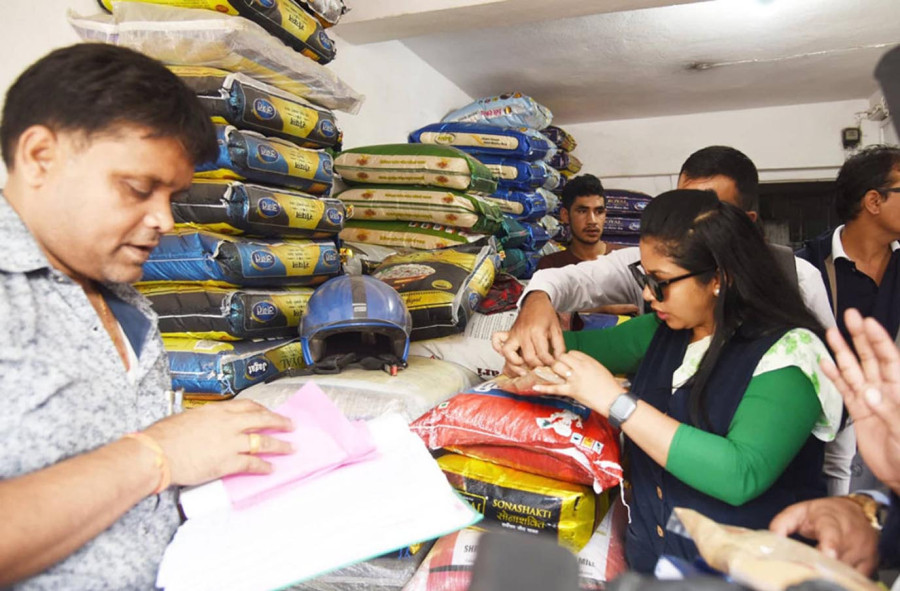Valley
KMC, authorities start market inspection to check irregularities
Deputy mayor asks people to notify KMC if anyone is found black-marketing in essentials.
Anup Ojha
The Kathmandu Metropolitan City (KMC), in coordination with the Department of Food Technology and Quality Control, the Nepal Chamber of Commerce and other stakeholders, has started market inspection to prevent irregularities in the sale of essentials ahead of the Dashain festival.
On Tuesday, three teams of City officials, one of which was led by Deputy Mayor Sunita Dangol, visited groceries and supermarkets in various areas of Kathmandu. The teams inspected shops in the Balaju-Chabahil, Bagbazar-Tripureshwar, and Kalamati-Kuleshwar stretches but did not book any shops for wrongdoing.
“On Tuesday we didn’t find any serious wrongdoing by shops and businesses,” said Dangol, who also coordinates the KMC’s Consumer Rights Protection Committee.
Consumer rights activists, however, have asked City officials not to make market inspections a once-a-year ritual and called for more such inspections regularly.
“These inspections should not be limited to the Dashain time, and should be done throughout the year,” said Jyoti Baniya, chairman of the Forum of Protection of Consumer Rights-Nepal.
The inspection teams, each comprising over half a dozen stakeholders, inspected vegetable shops lining the Tukucha creek at Putali Sadak, meat shops at the nearby Khasi Bazar, and also visited the Thapathali-based Food Management and Trading Company, where the team found a few sacks of rice past their suggested date of use. The officials also inspected the Kalanki-based Bhatbhateni Supermarket.
“Tuesday’s visits were more about making shops and businesses aware of irregularities and associated punishments. Anyone found involved in serious irregularities will face action,” said Dangol.
But consumer rights activist Baniya said the authorities are not doing enough to check irregularities including food adulteration and black market.
“Do you believe there is no black-marketing in essentials? Can you get quality food and goods everywhere?” questioned Baniya.
Meanwhile, on Tuesday evening, the KMC had invited journalists to accompany officials during their market monitoring at Kalimati vegetable shops, and on Wednesday they inspected shops in the Kalimati area. But no action was taken against any shops.
Last February, the KMC had issued the ‘Market Management and Monitoring Act’ where it clearly states that all businesses, firms and shops should ensure the quality of goods they produce or sell. The law also prohibits the sale of goods or services by deception, or black-marketing, overcharging, and creating artificial shortage, sale of fake and adulterated goods.
The law also requires shops and businesses operating in the city to register with the KMC.
“But we have found many businesses operating without registration and asked them to follow the law,” said Dangol. She said such businesses have been given time to register with the KMC.
While promising to conduct regular inspections throughout the year, she also requested one and all to call the KMC’s toll free no 16600-105511 or 1180 and inform the officials if they come across any market irregularities including black-marketing in goods.
Article 3 of the Consumer Protection Act, 2075 (2018) states that every consumer has the right to quality goods and services.




 13.12°C Kathmandu
13.12°C Kathmandu.jpg)













